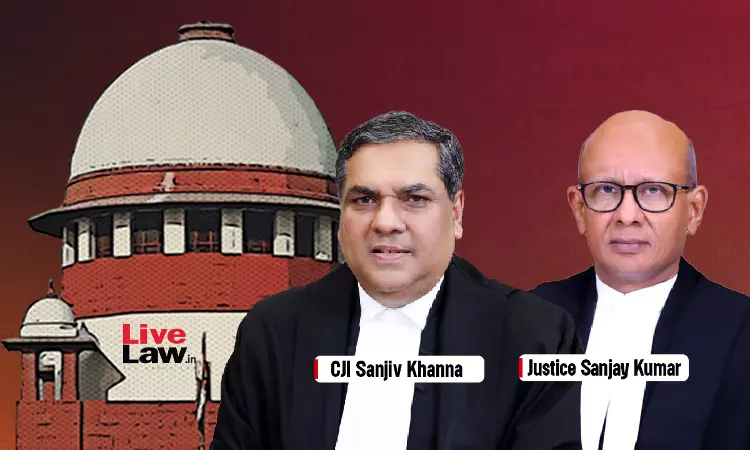Wife Can Claim Maintenance From Husband Even If She Doesn't Live With Him As Per Decree On Conjugal Rights Restitution : Supreme Court
Yash Mittal
11 Jan 2025 9:13 AM IST

There is no hard and fast rule that husband can deny maintenance to wife merely because she doesn't live with him, the Court said.
Next Story


